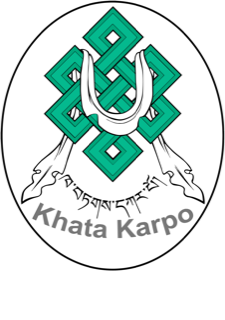The Khata Karpo Association
Khata Karpo's mission
Refugees are committed to find a balance between preserving the culture they left behind and integrating into the welcoming country in which they are about to start a new life. This challenge is particularly urgent and stressful for Tibetans.
On the one hand, they very often feel a remarkable and surprisingly strong attachment to their culture and language.
On the other hand, they know that, in their native Tibet itself, their fellow Tibetans are in a position to protect or develop the civilization of which they are so proud. Indeed, in Tibet, the State apparatus of the People's Republic of China, that is to say the Chinese Communist Party, is the one that guides decisions in all fields (economic, political, religious, linguistic, cultural or environmental field, to name the main ones). As a result, Tibetan culture in Tibet is still regulated, and often hindered and instrumentalized, by a Chinese state that is characterized by its mistrust of any overly free expression of a people it considers as a restive "minority" that could be a threat to national unity. The Tibetan language - currently resisting mainly thanks to the tenacity of the Tibetans themselves - has to compete with a Chinese language that is increasingly present in Tibetans’ daily lives since the earliest stage of Tibetan children lives, via schools and the media.
We can therefore measure the peculiar pressure Tibetan refugees in France experience. Although they are few in number (less than ten thousand), they often feel invested in their host country with a mission to represent and safeguard a civilization endangered on its own soil, and each in their own way try to carry out activities in which they celebrate and practice their culture. To cite only a few examples, they regularly organize parties where they meet to dance and sing, teach Tibetan language to children on Sunday mornings in Paris, and in January 2018 refugee journalists launched a bilingual Franco-Tibetan newspaper.
At the same time, Tibetans are aware that they must blend in the French social, economic, cultural and even political environment, if only to ensure the success of their mission to contribute to the survival of Tibetan culture and language. Like all refugees, they attend French language courses and training courses organised by Pôle Emploi. However, it is easy to guess that these support programmes are still few in number and of uneven quality.
The Khata Karpo association was created to alleviate this problem. By organizing French courses for Tibetans and Tibetan courses for both Tibetans and French, sports tournaments, cultural outings and legal training, the association – equally composed of Tibetans and Westerners - allows Tibetans and French people to meet and exchange ideas on cultural or linguistic projects. During its three years of existence, and despite limited means, Khata Karpo has been able to meet some of the expectations of Tibetans living in France, with respect for Tibetan civilization while keeping in mind the integration project, and to build bridges between French people wishing to discover the Tibetan language and culture and through the Tibetans themselves.
We can only hope that the association's many projects will succeed in the near future, both for the benefit of Tibetan refugees in France and for the benefit of their host society. Indeed, in an open and globalized world, a successful integration that integrates respect of the refugees' root culture is the guarantee of a harmonious coexistence between populations.
Françoise Robin - may 2020
Professeure des universités - Langue et littérature tibétaines བོད་ཀྱི་སྐད་ཡིག
Responsable de la section Tibet à l'Inalco.
INALCO

 Français (France)
Français (France)  English (UK)
English (UK)  Tibétain (Tibet)
Tibétain (Tibet)